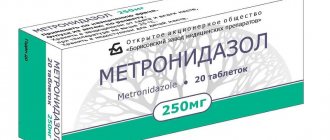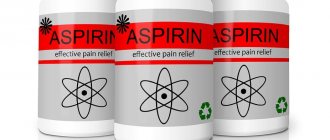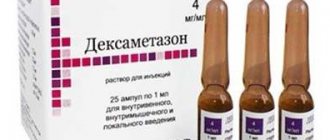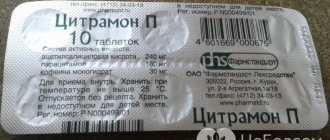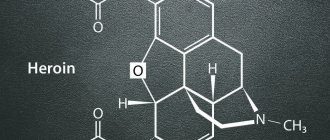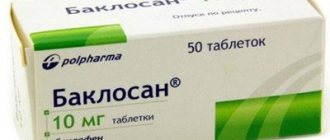Tablets and structure of the antihypertensive captopril ACE class
Capoten is a drug from the group of angiotensin-converting enzyme inhibitors. The active ingredient of the drug is captopril. The use of the medication is prohibited for diseases of the circulatory system. The dosage depends on the severity of the condition and the individual characteristics of the patient. The frequency of administration and portion should be selected by the attending physician.
Indications
This drug can be used for persistent forms of heart failure, when the muscle needs help in working. Capoten is also often prescribed for therapeutic therapy for a patient suffering from hypertension, and the treatment must be comprehensive. If a person has suffered a myocardial infarction, then the tablets are used to reduce the risk of a recurrence of such an attack, and they also help speed up the process of recovery and recovery of the patient. When a patient develops pathological processes in the kidneys due to diabetes, then such tablets are used to normalize the functioning of the renal gland and inhibit pathological processes.
The drug itself quickly enters the bloodstream, as it is easily absorbed by the walls of the stomach; for this reason, its maximum dosage in the blood is observed just a couple of hours after use. If you take the tablet during or after a meal, the absorption of the drug will be significantly slowed down.
The dosage of Capoten should be prescribed by a doctor, since only the attending physician can know the individual characteristics of the patient’s body, as well as how necessary it is for the patient to use such a drug for treatment. It is worth remembering that an overdose of Capoten usually occurs when this drug is prescribed incorrectly, and can lead to the death of the patient.
Price
The cost of the drug depends on the manufacturer and retail outlet. Here are some examples of Captopril prices in Russian pharmacies.
| Dosage of active substance in mg | Number of tablets per package | Price in rubles |
| Captopril 25 Analog from Sandoz | 20 | from 9 to 13 from 85 to 106 |
| Captopril 25 Analog from Sandoz | 40 | from 12 to 29 from 140 to 167 |
| Captopril 50 | 20 40 | from 25 to 50 from 40 to 61 |
What are the contraindications for this drug?
Any medication has some side effects and contraindications for use; usually a side effect occurs precisely for this reason, that the patient does not read the list of contraindications; against this background, drug poisoning also occurs.
In what cases is this drug prohibited:
Narrowing of the aorta;- Any type of allergic reaction to the components included in the drug;
- The patient's age is up to eighteen years;
- Quincke's edema, which may occur in a patient after using ACE inhibitors;
- Failure of the renal and hepatic glands, as well as the period after transplantation of a new kidney;
- Carrying a child and the period of feeding the baby with breast milk.
It is also worth noting that this drug is used with extreme caution by diabetics and people with autoimmune diseases. In these cases, Capoten can be prescribed exclusively by the attending physician in order to avoid serious consequences.
It is also worth mentioning that the medication can cause some side effects if used incorrectly.
What symptoms may appear:
- Mild or severe allergic reactions to the skin;
- Tachycardia;
- Serious visual impairment;
- Significantly reduced blood pressure;
- Severe pain in the temples and back of the head, as well as dizziness;
- Constant and strong desire to sleep.
Only an experienced doctor will be able to determine the exact dosage of Capoten, which ultimately will not harm a person, while the lethal dose cannot be called with precision, since it can be different for each patient, depending on the existing diseases and the tolerability of the components of this medicine.
It is also worth remembering that such a drug is strictly incompatible with alcohol; if you take alcohol together with Capoten, the process of lowering pressure will be too rapid, which causes severe nausea and vomiting, and the combination of these substances causes disruption of the kidney gland. If a patient experiences such an overdose, then without help the patient may soon die.
Side effects
Side symptoms can arise from different internal organ systems. A rash may occur on the skin. Often this symptom is accompanied by itching. In rare cases, body temperature rises. The disappearance of the rash is observed after reducing the dosage of the drug.
The gastrointestinal tract often reacts to taking the drug with taste disturbances, dry mouth, abdominal pain, and diarrhea. Some patients complain of headaches, dizziness, drowsiness, cough, tachycardia, peripheral edema. There are quite a lot of side symptoms. You must inform your doctor about their presence. Some side symptoms require medical attention. For example, if there is swelling of the face and lips, the medication is discontinued and antihistamines are prescribed. Swelling of the tongue, pharynx, and larynx becomes life-threatening. To eliminate this side effect, adrenaline is injected under the skin.
Main signs of drug poisoning
To begin with, we will talk about the exact reasons for which an overdose of Capoten most often occurs; in fact, the reasons are very simple, but we will describe them further.
Causes:
Exceeding the dosage often occurs if the patient prescribes this drug to himself or takes other medications that have a similar composition. In addition, poisoning with the components of the drug can occur when a person during a hypertensive crisis takes too large a dosage of Capoten in order to lower blood pressure in a shorter time.
Quite often, drug poisoning occurs in young children who mistake pills for candy and drink a very large dose of the drug.
Composition of the drug
The active substance of Capoten is captopril. Its content in one tablet is 25 mg. This substance prevents high blood pressure and helps reduce it.
Kapoten contains several excipients:
- corn starch;
- microcrystalline cellulose;
- lactose;
- stearic acid.
Main symptoms
Most often, a person experiences apathy and severe weakness in the body, then dizziness may occur, to which nausea and frequent bouts of vomiting are added. It is not uncommon to experience pain in the head, which is located at the temples, in the forehead and back of the head. Immediately after taking a large dose, blood pressure begins to drop rapidly, which can also lead to increased heart rate and pain in this vital muscle. In case of a very serious overdose, the patient's kidney function is impaired.
The first signs of drug poisoning may appear just thirty minutes after using the tablets. If the patient is not given first aid on time, the person can die in just fifteen minutes; in this case, Quincke's edema develops, the body's respiratory functions are seriously impaired, the person falls into a coma and then dies.
Analogs
The pharmaceutical industry has developed two types of Captopril analogues:
- containing a similar amount of the main active ingredient;
- containing a substitute for the active substance with a similar spectrum of action.
The first group of generics containing Captopril includes:
- Angiopril-25;
- Blockordil;
- Kaptopres;
- Alkodil;
- Kapoten.
The second group of generic Captopril consists of ACE inhibitors:
- Accupro;
- Amprilan;
- Arentopres;
- Bagopril;
- Hypernik;
- Dapril;
- Diropress;
- Zonixem;
- Irumed;
- Coverex;
- Metiapril and some others.
How to provide first aid to a patient?
Since Kapoten cannot be called a harmless drug, assistance to the patient in case of poisoning should
appear immediately. The first thing that is required is to call an ambulance at home, mentioning the name of the drug and the dose of tablets taken, and it is also necessary to indicate the age of the patient. While the ambulance is on its way, someone close to you can provide first aid to the victim.
The first thing that needs to be done in this situation is to rinse the patient’s stomach, preferably several times, so that all remnants of the drug are washed out, this makes it possible to stop the process of further deterioration of the condition. To lavage the stomach, a person is first given a couple of glasses of clean water to drink, and then immediately induced to vomit.
Immediately after this, the patient should be given a special sorbent, preferably in the form of a solution, such a product will collect the remaining toxins and prevent the poison from spreading further throughout the body.
The victim can drink tea without sugar or warm water, but only in small sips. The patient is then continued to be monitored, and after the ambulance arrives, the victim is sent to hospital treatment under the supervision of a doctor.
Clinical picture of overdose
One of the pronounced side effects of captopril is photosensitivity. With long-term poisoning with small doses of a pharmacological drug, the skin becomes covered with dark spots after prolonged exposure to the open sun.
Exceeding the standard dose by just one tablet causes the following signs of poisoning:
- a sharp decrease in pressure, orthostatic hypotension;
- severe swelling of the limbs;
- dizziness, impaired coordination of movements, migraines, drowsiness;
- violation of the coordination of muscle movement;
- feeling of numbness, tingling, crawling all over the body;
- psychopathic states: weakness, increased fatigue, emotional lability;
- sore throat, cough without sputum, constriction of the bronchi, pulmonary edema;
- disturbance of urination: decrease in the volume of urine excreted, change in its color and smell;
- indigestion: nausea, vomiting, bloating.
Characteristic features of the symptoms of chronic captopril poisoning include the development of acidosis, or a shift in blood pH to the acidic side . This pathological condition leads to diarrhea, loss of appetite, and heartburn. The victim's breathing quickens and a chemical odor appears from the mouth. Long-term overdose provokes the occurrence of stomach and duodenal ulcers, intestinal inflammation, and hemorrhagic cystitis.
Human sweat contains excess acid, which causes hives and eczema. Due to a violation of the water-salt balance, salts begin to be deposited in the joints. There is a danger of arthrosis and gout.
What kind of therapy is carried out in the medical institution?
Since the heart muscle begins to suffer from this drug, the person is prescribed medications that can support the functioning of the heart and the entire cardiac system; doctors must also quickly bring blood pressure back to normal and monitor the patient’s condition constantly, monitoring the pressure. In very serious cases of poisoning, a procedure may be necessary to cleanse the blood of toxic substances, that is, the doctor prescribes hemodialysis.
After the person’s condition has normalized, doctors conduct a full examination of the body for disturbances in the functioning of organ systems after an overdose; it is equally important at this time to prescribe a vitamin diet. If help is provided to the patient on time, the person will survive and after a few weeks of treatment will be able to fully recover.
Video: Capoten or Captopril: which is better?
Read further:
Donormil overdose
